Post
A catch
Save a catch to start your fishing logbook. You will be able to to share it with the community if yo want!
A fishing trip
Post an ad to go fishing with other fishermen
Save a catch to start your fishing logbook. You will be able to to share it with the community if yo want!
Post an ad to go fishing with other fishermen
Share a thought, a question with the community
My favorite cities
×Join our 1285 fishermen and our 8 cofishermen in Bayswater in Greater London. The fishing forecast is currently 2.8. The most caught fishes here are bleak fish, the strerlet fish , the bronze bream and the silver bream. Come try the most famous fishing techniques like the gathering seafood by hand, fishing sea bream with soft lures, quiver tip fishing (type of lead fishing) or pole feeder fishing.
Our fishing forecast of Bayswater indicates the best time to go fishing in this city.
Bleak Fish
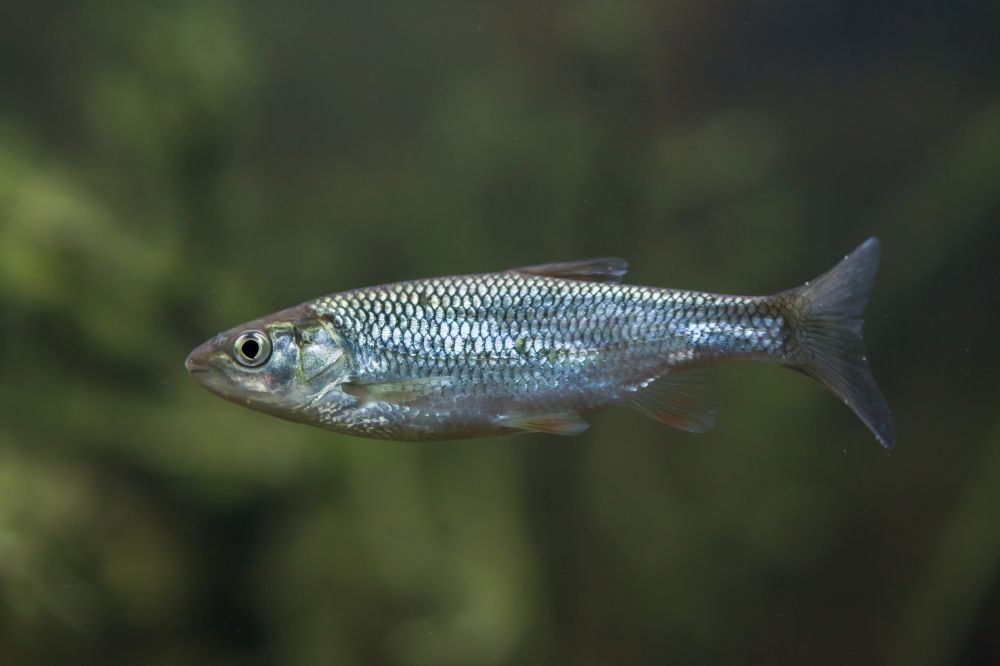
The Bleak fish is a Cyprinidae. In general, its average size is 10 to 15 cm and its weight is 15 to 50 g. However, some individuals can reach up to 60 g for a size of 25 cm. The bleak has a lifespan of 6-7 years. The spawning period is between April and August. It can lay up to 7000 spawns. You can fish bleak from June to September. This fish swims quite fast and offers a little resistance during the catch. The bleak is a fish with an elongated body that is very compressed laterally, allowing it to have a high velocity. The upper jaw is shorter than the lower jaw. The mouth of the bleak is oriented upwards (above), a typical character of fish that seek their food on the surface. The caudal fin is strongly indented and the caudal peduncle is thin. The dorsal fin is inserted behind the pelvic fins and has a shorter base than the dorsal fin. Its name refers to the bright white color of its scales, which gives the bleak a metallic sheen. Its back is darker greenish-blue, its sides are silvery white and its fins are pale grey. During the breeding season, nuptial tubers appear on the backs and sides of males and their fins become orange.
Bleak Fish is a famous fish you can catch in Bayswater.The Strerlet fish
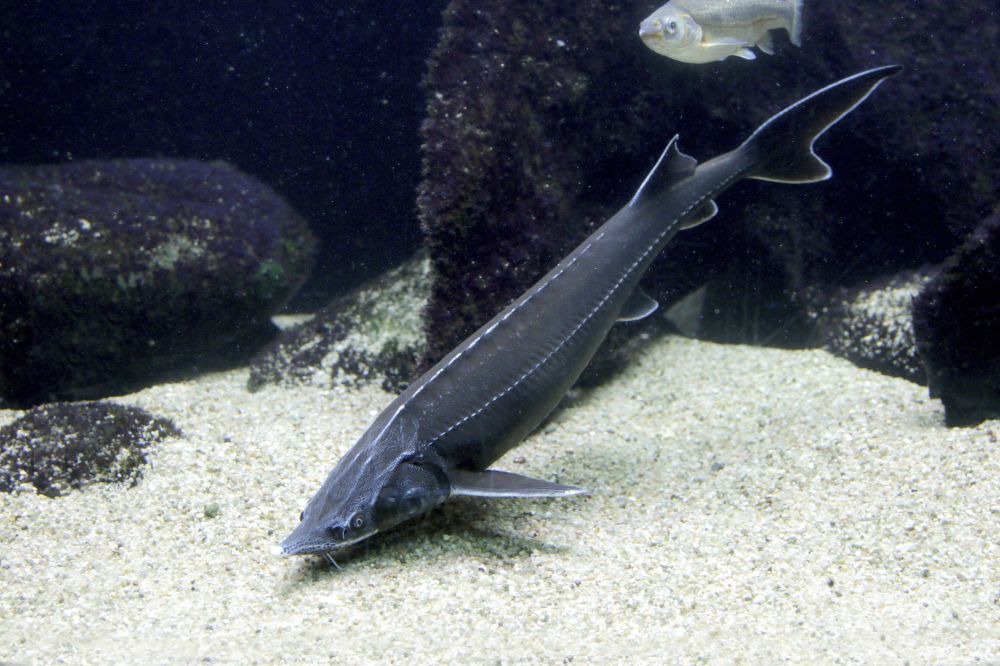
The Sterlet fish belongs to the Acipenseridae family. The Sterlet fish measures about 3.50m in length and weighs 300kg. It can live a hundred years. Females lay more than 800,000 eggs on the gravel. Spawning season is around May to June. It can be fished all year round. The back and sides are grey to beige, the ventral and lateral parts are lighter (almost white). Five longitudinal rows of large bone plates are arranged along the body. The upper lobe of the caudal fin is more developed than the lower lobe. The muzzle is narrow, pointed and raised upwards with four long fringed barbells. The lower lip is notched in the middle. The Sterlet fish has a protractile mouth placed on the underside of the head.
The Strerlet fish is a famous fish you can catch in Bayswater.The Bronze Bream
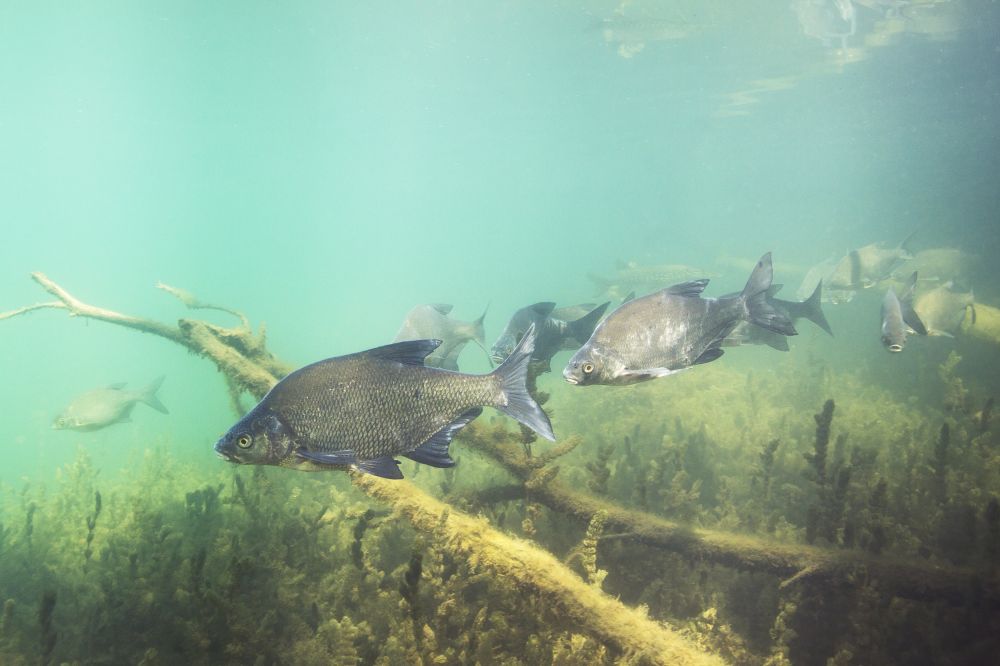
The Bronze bream belongs to the Cyprinidae Family. The current catch size varies between 30 and 50 cm, for a weight of 0.5 and 2.5 kg. Some individuals can reach a maximum height of 80 cm for a weight of 7 kg. It lives between 20 and 25 years. It reproduces between April and June and lay 100,000 to 300,000 eggs. The Bronze Bream can be fished all year round in 2nd category streams and is not hard to catch with the right bait. In Europe, there are 2 or 3 types of bream, 5 species and 2 subspecies. The Bronze bream has a very high and strong body flattened laterally. The bushy back, especially in older individuals, is characteristic of this fish. Its body is covered with large scales and mucus. The Bronze bream has a fairly small eye compared to the size of the muzzle. The mouth is small, oblique, barbless and protractile. The upper jaw protrudes beyond the lower jaw. Teeth are subject to seasonal replacement. The anal fin is very long and has 23-30 soft rays. On the other hand, the dorsal fin is short and inserted behind the pelvic fins. The caudal fin is very indented with the lower lobe longer than the upper lobe.
The Bronze Bream is a famous fish you can catch in Bayswater.The Silver Bream
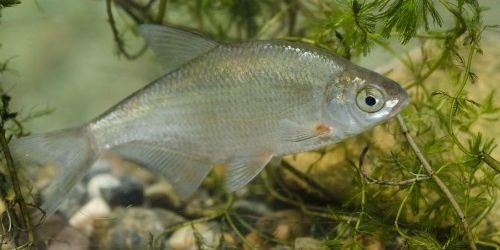
The Silver bream belongs to the Cyprinidae family. The usual size of the Silver bream is 20 to 30 cm and weighs about 200 g. The largest specimens can reach 35 cm. The life span of the Silver bream is about 10 years and it breeds from May to July. The female lays 20,000 to 60,000 eggs. It can be fished all year round. The Silver bream (Blicca bjoerkna) has a high, laterally flattened body, with a bushy back, characteristic of breams and accentuating with age. The head of this bream is small in relation to the size of its body but its eye is quite large, compared to its common cousin. Its snout is short and its mouth is oblique downwards, a characteristic common to fish seeking food on the bottom. The mouth is protractile (it unfolds forward) and free of barbells, surrounded by thick lips. The Silver bream is characterized by a long anal fin with between 22 and 26 rays, although shorter than the fresh water bream (26 to 30 rays). The dorsal fin of the Silver bream is short and high. The caudal fin is strongly indented. The Silver bream has a silvery coloring on the sides and belly, with a dark greyish-green or olive-colored back. The pelvic, pectoral and anal fins have an orange-red color. This last coloring can affect the whole stomach in older Silver breams.
The Silver Bream is a famous fish you can catch in Bayswater.The River Lamprey
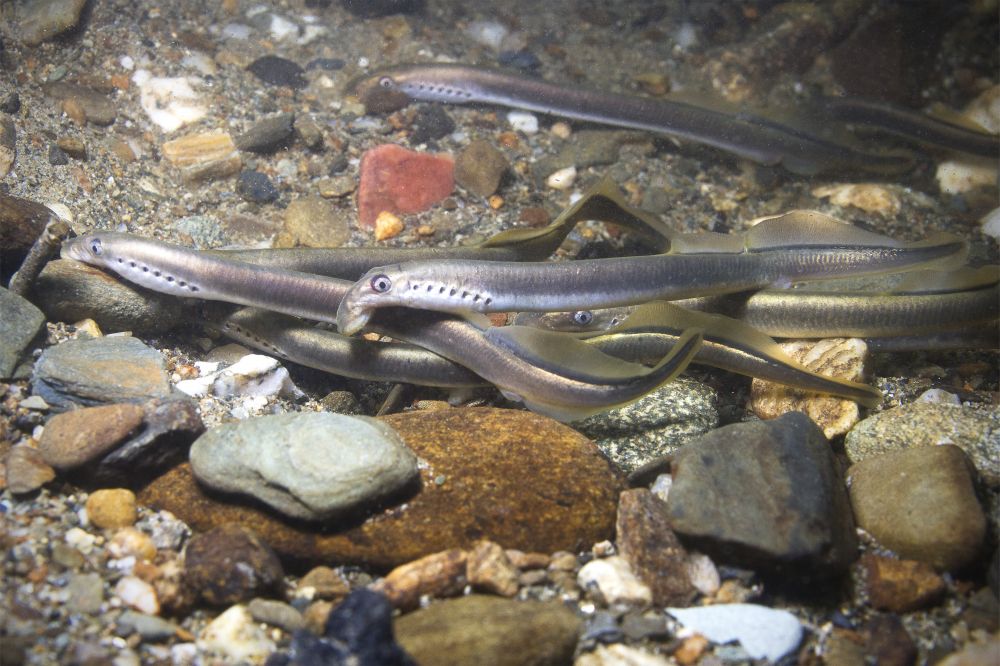
The River Lamprey belongs to the Petromyzontidae family. It measures 18 to 50 cm (average 25 to 35 cm) and weighs 30 to 150 g (average 50 to 70 g). Females are larger than males. The maximum age of the river lamprey is estimated at 10 years. Reproduction takes place between January and May. The number of eggs varies between 4,000 and 40,000. It is caught from January to May. A vertebrate with a cartilaginous skeleton and no jaws, the river lamprey has an anguilliform body, without scales and covered with toxic mucus. Its back is bluish to brownish green. Its sides are greyish, tanned, without mottling. The belly is white. The eyes are very well developed but remain primitive. A single nostril is located between the two eyes. In adults, the circular mouth in the lower position is a suction cup adapted to suction. The buccal disc and tongue are covered with only a few horny denticles, but most of them are strong and acute. On each side of the head, this species has seven pairs of circular gill holes (spiracules). The river lamprey has three fins: one caudal and two dorsal. The two dorsal fins are separated by a small interval, the second being triangular in shape, longer and higher than the first. The larvae are light-colored and its mouth is horseshoe-shaped. His eyes remain hidden under the skin. So it’s blind.
The River Lamprey is a famous fish you can catch in Bayswater.Our fishing forecast of Bayswater indicates the best time to go fishing in this city.
Our fishing forecast of Bayswater indicates the best time to go fishing in this city.
Our fishing forecast of Bayswater indicates the best time to go fishing in this city.
